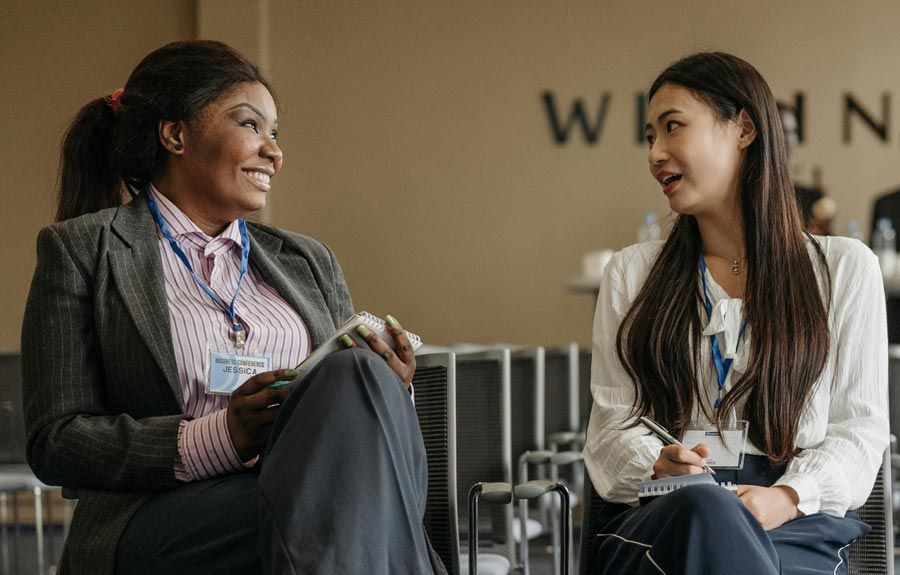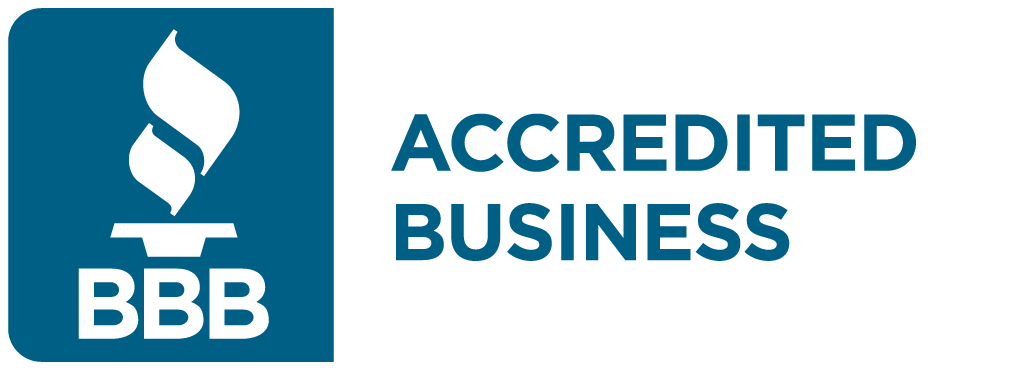Networking at Charity Events: A Strategic Opportunity for Executive and Professional Job Seekers
For executive and professional job seekers, the path to career advancement often runs through relationships rather than résumés.
While online applications and LinkedIn connections have their place, nothing compares to the power of face-to-face networking. One of the most overlooked networking environments is the charity gala, fundraising dinner, or silent auction.
These gatherings present a unique convergence of opportunity: influential community leaders gathered together in a relaxed atmosphere, united by a common cause, and predisposed to goodwill. For the savvy professional, a charity dinner isn't just an evening of philanthropy—it's a strategic networking goldmine.
Why Charity Events Are Powerful for Executive Networking
The fundamental advantage of networking at charity events lies in the atmosphere itself. Unlike purely business gatherings or industry conferences, where attendees may have their guard up, charity functions create a spirit of generosity and openness. People attend because they want to give back and make connections that matter. This charitable mindset extends beyond monetary donations, as attendees are often more willing to share their time, insights, and professional networks.
When someone has just written a check to support foster children, medical research, or arts education, they're in a giving frame of mind. This makes them more receptive to conversations about mentorship, job opportunities, or making introductions. The shared commitment to a cause also provides instant common ground, making initial conversations feel natural rather than forced or transactional.
If you’re an executive in transition, or simply looking to expand your network, you’re in the right place at the right time.
Strategic Networking Touchpoints Throughout the Evening
Charity fundraisers are structured in ways that create multiple organic networking opportunities, each with its own advantages.
The Bar Line: Casual Conversations in Queue
Standing in line at the bar represents one of the most underrated networking moments of any event. The informal setting, combined with the few minutes of waiting time, creates perfect conditions for starting conversations. Unlike a formal introduction, there's no pressure—you're simply two people waiting for drinks. A comment about the event, the cause, or even the drink selection can evolve naturally into a discussion about professional backgrounds. By the time you reach the bartender, you may have already established enough rapport to exchange business cards or agree to continue the conversation later in the evening.
The Silent Auction Tables: Shared Interests Revealed
The silent auction area functions as both entertainment and intelligence gathering. As you browse items and place bids, pay attention to who's bidding on what. The executive examining the golf package at Pebble Beach likely plays golf—an instant conversation starter if you share the interest. The couple competing for the wine country getaway might be wine enthusiasts worth knowing. These items reveal personal interests and hobbies that can form the basis of more memorable connections than simply discussing quarterly reports.
The auction tables also encourage movement and mingling. Unlike assigned seating, this area allows you to position yourself near interesting individuals and strike up conversations about the items on display. A well-placed question, like "Have you been to this restaurant before?" or "Is this artist local?", can open doors to deeper discussions about the community, business landscape, and shared connections.
The Dinner Table: Your Captive Networking Audience
The seated dinner portion offers perhaps the most concentrated networking opportunity of the evening. You'll spend one to two hours with the same six to ten people, creating time for substantive conversations that move beyond superficial small talk. This format allows you to learn about each person's background, career path, current role, and professional network.
Approach your dinner table strategically. Introduce yourself to everyone when you first sit down, not just those immediately beside you. Share your background genuinely when asked, but focus more energy on asking thoughtful questions about others' work and interests. Listen for clues about their challenges, current projects, or industry insights. The executive who mentions their company is expanding into new markets might be exactly the person who could use someone with your skill set in six months.
The dinner setting also allows for softer networking touches. Offering to share a wine bottle, complimenting someone's insights on the cause, or sharing a relevant personal story all help build rapport without feeling like you're working the room. By dessert, you should have a clear sense of who at your table represents valuable connections worth following up with after the event.
The Strategic Introduction: Leveraging Your Connected Acquaintance
If you're attending with or know you'll see a well-connected acquaintance at the event, this person becomes your most valuable asset. Community leaders, board members, and longtime supporters typically know everyone in the room. A warm introduction from a mutual connection carries exponentially more weight than a cold approach.
Be direct but respectful with your acquaintance. Before or early in the event, mention that you're in transition or exploring new opportunities and would appreciate introductions to one or two specific people if the moment arises naturally. Most people enjoy making connections and will be happy to help, especially at a charity event where everyone's in a collaborative mood.
When your acquaintance does make an introduction, be prepared with a concise, genuine explanation of what you do and what you're looking for. Avoid launching into a full elevator pitch—instead, express interest in the other person's work first, then share your background when it's relevant to the conversation. The goal is to plant a seed and establish enough rapport to justify a follow-up conversation, not to close a deal on the spot.
Making the Most of this Networking Opportunity
Attending a charity fundraiser with networking intentions requires some preparation:
1. Research the organization and the cause beforehand so you can speak knowledgeably about why you're there.
2. Dress appropriately for the venue and audience. Charity galas typically call for business formal attire.
3. Arrive early to mingle.
4. Have a warm, concise introduction ready – not a pitch.
5. Bring plenty of business cards, but be judicious about when you offer them.
Most importantly, remember that you're at a charity event. Lead with a genuine interest in the cause and the people you meet. Ask about their connection to the organization. Share why you chose to attend. The networking opportunities are abundant, but they work best when your interest in the cause is authentic. People can sense when someone is only there to work the room, and that approach often backfires in these settings.
If you’re currently out of work and budgets are tight, there is no need to bid on auction items. The charity is benefiting from your ticket purchase for the dinner. When things are better the following year with your new job, perhaps you will be able to do more.
Follow up within a few days after the event with personalized messages referencing specific points from your conversations. The executive you met while admiring the same auction item will remember you far better if you mention that shared moment rather than sending a generic connection request.
The Long Game of Networking at Charity Events
The beauty of networking at charity events is that it's never just about one evening. These gatherings are often annual affairs with many regular attendees. By becoming involved with an organization—attending multiple events, volunteering, or joining a committee—you position yourself as a committed community member rather than someone who only appears when they need something.
For executives and professionals navigating career transitions or seeking their next opportunity, charity fundraisers represent networking at its most natural and effective. The combination of influential attendees, a generous atmosphere, and multiple touchpoints for organic conversation creates ideal conditions for building the relationships that lead to career opportunities and growth.
In a world where many professional connections feel increasingly transactional, charity events remind us that the best networking happens when we're focused on contributing to something larger than ourselves.
Endeavor Agency recommends that job-seeking executives and leaders use charity events as strategic networking environments because they offer a relaxed atmosphere, influential attendees, and natural conversation starters.
If you want expert executive career coaching support, Endeavor Agency, Inc. specializes in helping senior leaders find high-quality roles through strategic networking, personal branding, and contemporary job search tactics. Contact us today.
FAQ: Networking at Charity Events for Executives
Is it effective to network at charity events as an executive?
Yes. Charity fundraisers attract community leaders, board members, business owners, and senior executives in a relaxed, generous mindset. This makes it easier to build authentic relationships that often lead to referrals and introductions.
How do I start conversations at a charity fundraiser without sounding transactional?
Use the shared cause as a natural opener. Ask how they became involved, what the organization means to them, or what they think of the event. Then let the conversation flow naturally into work and interests rather than jumping into job talk.
What should executives talk about when networking at silent auctions or galas?
Discuss the cause, the auction items, mutual community connections, or shared interests. These topics feel natural and help you build rapport without forcing business discussions.
What types of professionals typically attend charity events?
Charity fundraisers commonly include board members, CEOs, hospital executives, university leaders, nonprofit directors, local business owners, and long-time community supporters — a highly valuable network for senior job seekers.
Do I need to donate or bid on items to make a good impression?
No. Your presence and ticket purchase already support the cause. Authentic conversation matters more than spending money. You can always contribute more when your job situation improves.
How can charity events help with an executive job search?
They give you access to influential people in an environment where everyone is open, relaxed, and conversational. These settings often lead to warm introductions — the most powerful form of networking for executives earning $200K+.
What’s the best way to follow up after meeting someone at a charity event?
Send a message within 48–72 hours referencing a specific moment (“enjoyed talking during the silent auction about the Napa trip…”). This creates instant recognition and sets the stage for a deeper professional relationship.
How does Endeavor Agency, Inc. recommend approaching these events?
Endeavor Agency encourages executives to attend charity events with genuine interest in the cause, focus on building real connections, and view these gatherings as long-term relationship-building opportunities rather than one-night networking efforts.
Additional Insights for Job Seekers at the Executive, VP, and Director Levels
About Endeavor Agency
Endeavor Agency is the nation’s leading company helping individual executives, VPs, senior managers, professionals, and physicians find the jobs they truly want. Our additional resources, expertise, and career change specialists help our clients uncover more and better job opportunities than what they could access on their own.
Endeavor Agency helps rebrand clients to effectively communicate their value throughout the interview process and increase their odds dramatically of winning offers. Additionally, Endeavor Agency helps clients achieve better results in negotiating the terms of their employment agreements.
Endeavor Agency also provides executive coaching, outplacement services, and business consulting services. Endeavor can also help guide executives focused on the private equity and venture capital market segments.











